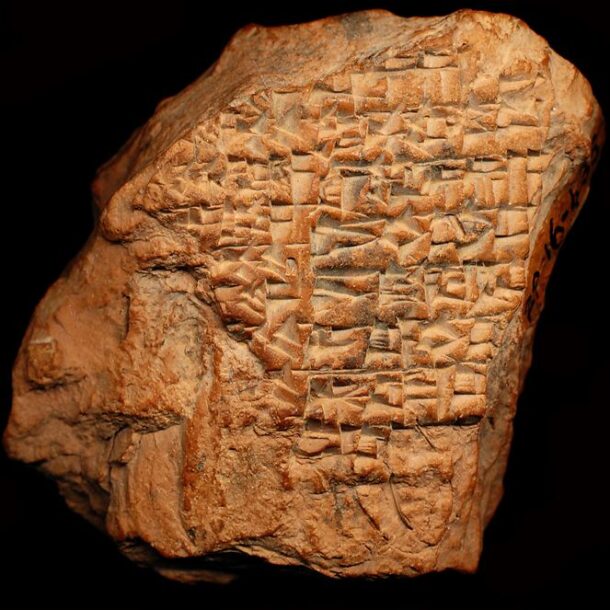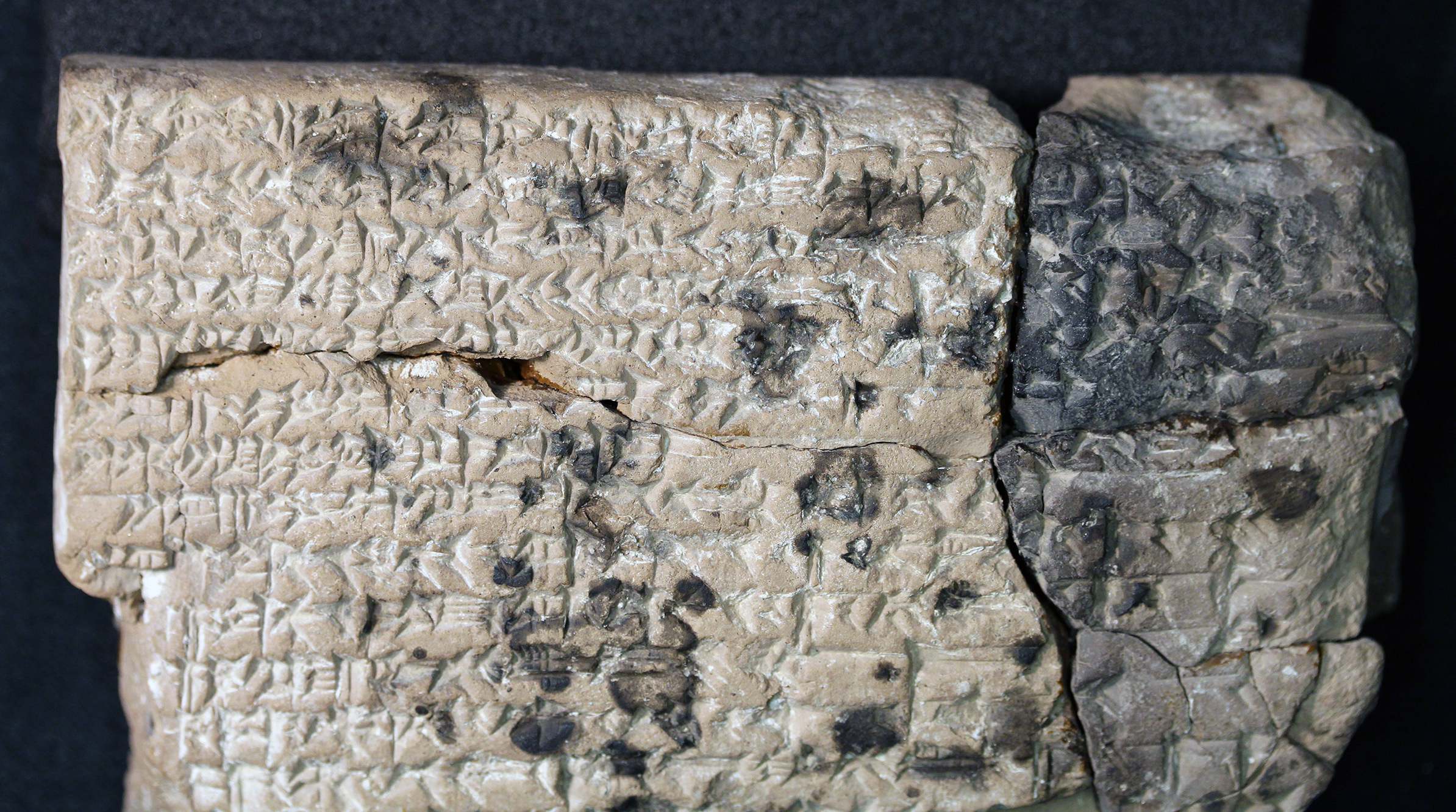Today’s tablet is part of the poem Inanna Prefers the Farmer. This poem is actually a prequel to the Courtship of Inanna and Dumuzi, not another name for the same piece as I said back on day 32. I can only apologise for the error, and in excuse offer that my metaphorical glasses were fogged up from all that steamy talk of sweet, thick milk.
This poem comes before the really raunchy stuff of the courtship. At this point, Inanna is leaning towards hooking up with the farmer Enkimdu rather than the shepherd Dumuzi. “I won’t be the wife of a shepherd!” she protests in the face of her brother Utu’s advice. She prefers the farmer’s colourful flax to the shepherd’s stinky new wool.
Sadly most of the lines where Inanna gives her reasons for preferring the farmer are missing, so the poem jumps directly to Dumuzi’s rendition of “Anything You Can Do I Can Do Better”:
“Let him give me his black garment, and I will give the farmer my black ewe for it.
Let him give me his white garment, and I will give the farmer my white ewe for it.
Let him pour me his best beer, and I will pour the farmer my yellow milk for it.
Let him pour me his fine beer, and I will pour the farmer my soured milk for it.
Let him pour me his brewed beer, and I will pour the farmer my whipped milk for it.”
The farmer is a placid and passive type, while the shepherd is hot-headed and boastful, so when the shepherd provokes a quarrel, the farmer backs down immediately. “Why should I compete against you, shepherd? Let your sheep eat the grass of the riverbank, let your sheep graze on my stubble.”
Saul Noah Kramer places this poem in the same tradition as that of Cain and Abel. It’s another example of a dispute between farmer and shepherd, only in that case the argument is over whether sacrifices should come in the form of livestock or agricultural offerings. Sheep or sheaves? Grain or goat? Ram or radish? In both stories, the deity chooses to take the shepherd’s meat.
So why does Inanna choose the shepherd Dumuzi? It can’t all be because of his virility in the cheese-making department. Or perhaps it is.
This story should be seen as part of the cultural reinforcement process of Sumer. The glitter and ritual of a royal wedding is supposed to reinforce the high station of the royals and raise the status of the nation on the world stage. A presidential inauguration should show the swelling masses of the people united behind their new chief. Inanna must choose the shepherd because the kings of Sumer were shepherds over the people. They even wore the traditional shepherd’s hat as a type of crown. This is an easier sell to the people than a farmer metaphor. In the universe of binary choices, it’s not the best, but would you rather be considered a sheep or a potato? In this metaphor, the king/shepherd must be ready to fight to protect his flock. He must be virile to produce an heir. He must be boastful to glorify his city.
Inanna chooses the shepherd because she must ceremonially marry the shepherd king each year in order to legitimise his rule. It’s still unclear why God of the Bible’s chose Abel and his lamb though. Maybe He’s on the paleo?

